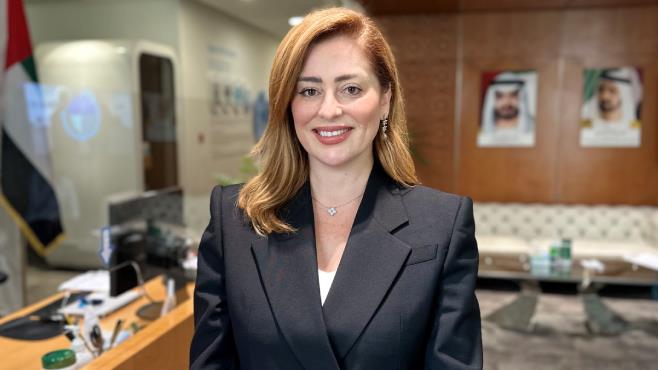

Impact investment is radically transforming the way companies and individuals make investments. In contrast to the traditional approach that focuses purely on the generation of financial returns, it seeks to create positive social and environmental outcomes in addition to returns on investment. This shift is crucial for addressing some of the world's most pressing challenges, such as climate change, poverty and inequality.
The adoption of impact investment has been gaining traction worldwide. The Middle East is no exception. There has been a notable shift towards embracing the concept in the region.
A good example is Saudi Arabia's Public Investment Fund (PIF), which has committed to investing billions in renewable energy projects to reduce the kingdom’s carbon footprint. Similarly, other sovereign wealth funds across the GCC are earmarking substantial portions of their portfolios for sustainable and impact investments, reflecting a broader shift towards more responsible and diversified economic strategies.
One of the financial institutions leading this charge is Barclays. With a presence in the region for more than 150 years, the London-based bank is using its long experience to spearhead the adoption of more holistic investment approaches.
Impact investing carries different meanings for different individuals, making its definition quite diverse, says Rasha Badawi, CEO of Barclays Private Bank UAE.
"At Barclays Private Bank, impact investment is not limited to ESG integration. We focus on creating client solutions and portfolios that directly contribute to the United Nations' Sustainable Development Goals," she says. "In fact, the bank's standard and discretionary portfolios naturally include ESG guidelines.
“We build upon these foundations to align with the UN's Sustainable Development Goals. This empowers our clients to raise their sustainability ambitions," she adds.
"When deciding on investments or constructing client portfolios, the bank prioritises companies, issuers and funds that actively support these goals. This is done by developing products and services with a positive impact on humanity and the world.
"For instance, if a company creates high-quality products but does so in an environmentally harmful way, we scrutinise such cases closely," explains Badawi.
Impact vs returns
While pursuing both financial returns and positive societal impact is an admirable goal, investors often grapple with the trade-off between the two.
Impact investments may involve directing capital towards initiatives that prioritise environmental or social benefits over immediate financial gains, which can lead to lower returns in the short term. Balancing these objectives requires astute decision-making and a willingness to adopt a longer-term perspective.
Banks are now witnessing a change in approach among investors who are focussing equally on positive societal change and competitive returns.
A case in point are Barclays Private Bank's sustainable portfolios, which are outperforming its more traditional cases.
Badawi explains that the bank has achieved this by making risk management its top priority. "Integrating ESG and sustainability factors reduces risks by aligning financial goals with positive social and environmental outcomes. This, in turn, means that over the long term, sustainable portfolios can outperform traditional portfolios," she says.
When investors prioritise projects and companies that actively contribute to sustainable development goals, they tend to support ventures with stronger long-term prospects. This approach not only mitigates reputational and operational risks but also fosters resilience in the face of evolving market dynamics.
The region is witnessing the emergence of a new generation of investors and financial institutions who are increasingly aware of the environmental and social implications of their investments. Even major energy companies that were traditionally focused solely on hydrocarbons are diversifying into renewable energy production.
This transition is not merely a response to global pressures but a strategic move to secure a sustainable future and foster a culture of responsible investing in the region.
Commenting on changing investor perspectives, Badawi adds, "The misconception that sustainable investments yield lower returns is becoming increasingly outdated. Investors in the Middle East, particularly in the GCC, have grasped this concept more comprehensively than others, recognising the dual benefits of financial gains and responsible investing practices."
The right push
Governments play a pivotal role in shaping economic and environmental policies that can help achieve economic diversification and long-term sustainability.
This is already happening in the Middle East, where governments are leading the charge to further the cause for impact and sustainable investing.
Examples include initiatives such as the UAE Green Agenda 2030, Oman Vision 2040 and Bahrain Economic Vision 2030 that focus on reducing environmental impacts and encouraging sustainable economic growth and clean energy investments.
"When governments prioritise and actively engage in sustainable and responsible initiatives, it provides a clear indication of the evolving landscape within our region," says Badawi.
"These government-led efforts not only underscore the region's dedication to responsible investing but also inspire private sector players to follow suit."
You might also like...

Iraq under pressure as oil exports slashed
04 March 2026

NWC to tender next phase of sewage treatment programme
04 March 2026

Fujairah oil facility catches fire from drone debris
03 March 2026
A MEED Subscription...
Subscribe or upgrade your current MEED.com package to support your strategic planning with the MENA region’s best source of business information. Proceed to our online shop below to find out more about the features in each package.
Take advantage of our introductory offers below for new subscribers and purchase your access today! If you are an existing client, please reach out to your account manager.









